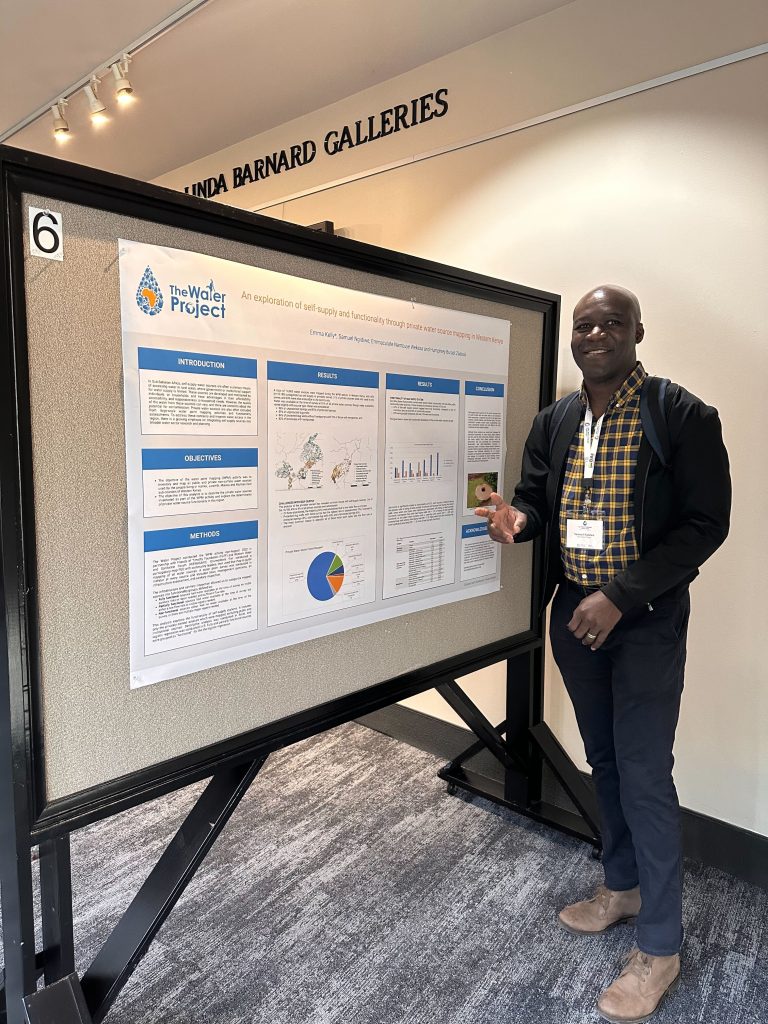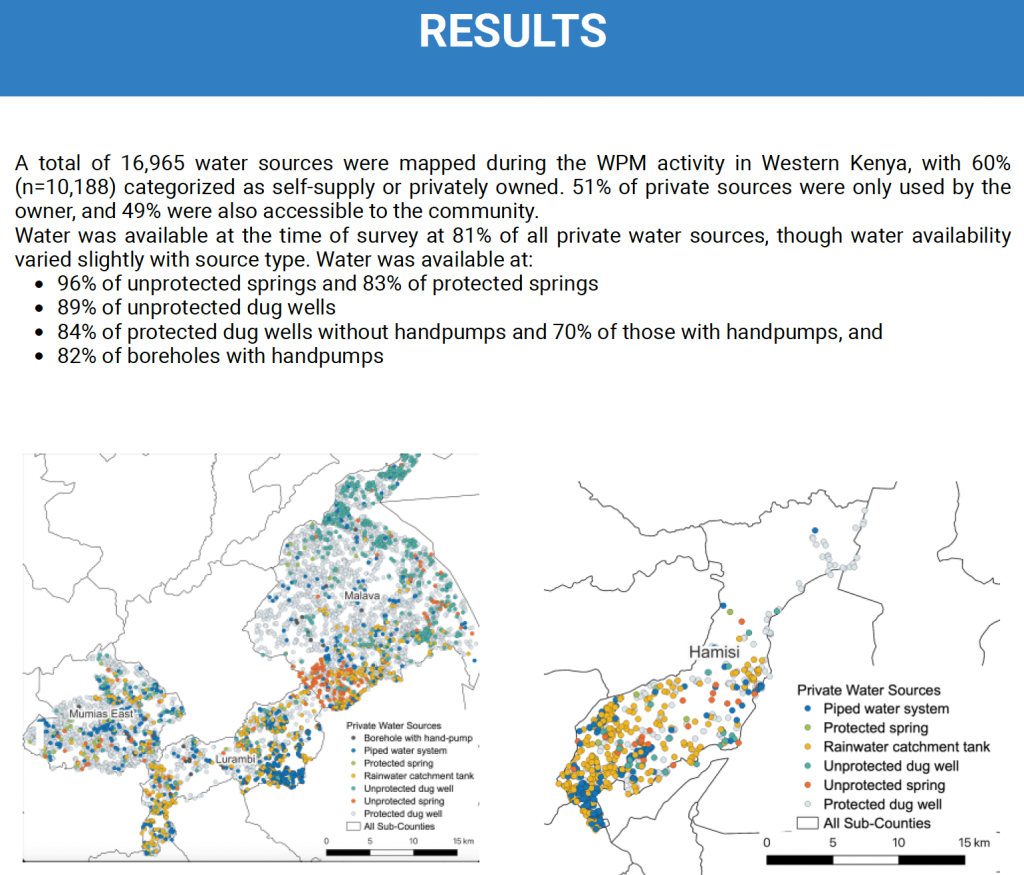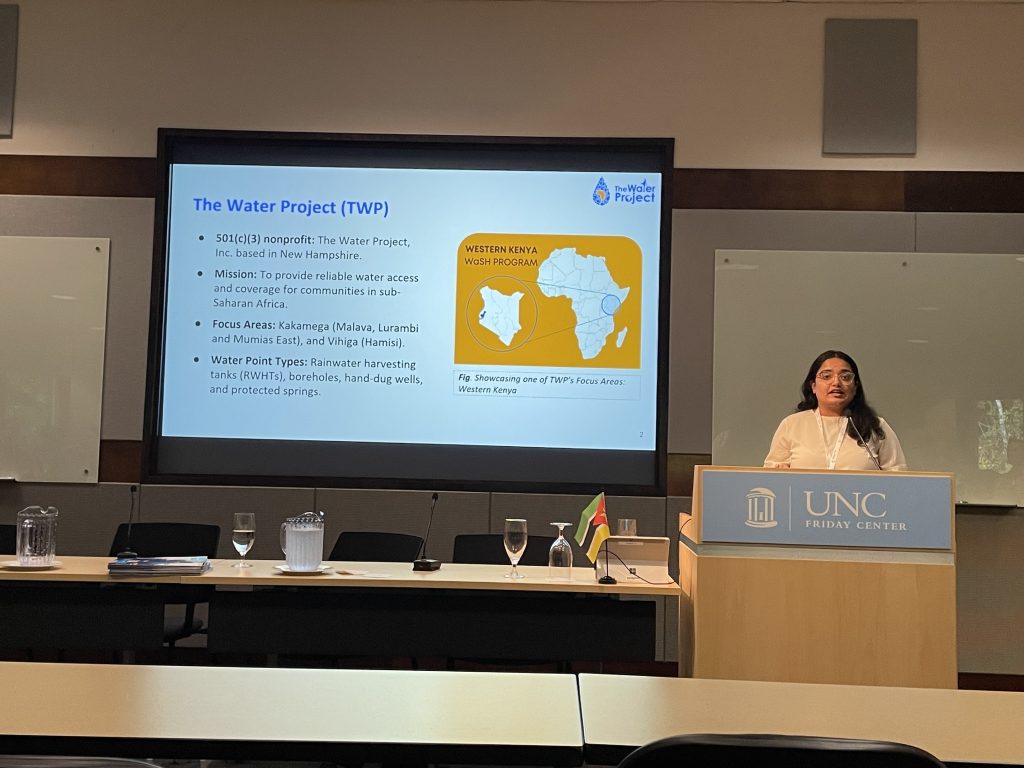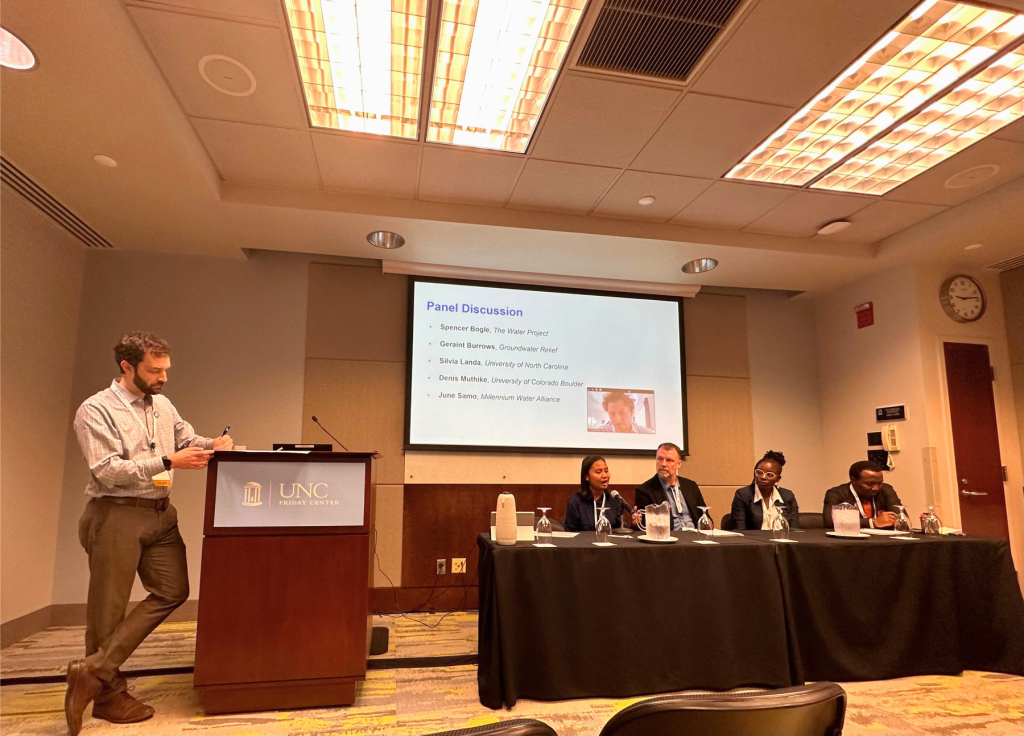The Water Project Made Waves at the UNC Water and Health Conference 2023
Back in October, four members of The Water Project’s (TWP) staff attended the internationally recognized University of North Carolina (UNC) Water and Health Conference in Chapel Hill, North Carolina. As a Water, Sanitation, and Hygiene (WaSH) nonprofit, The Water Project always gains significant knowledge from this conference, and this year was no different. But 2023 also saw TWP being much more involved. We took on a co-hosting role for one event and presented in two others, showcasing our significant contributions to sector research.
“The purpose of the conference was to bring together WaSH professionals, policymakers, and researchers to review the evidence, interrogate the science, highlight sector challenges, and share innovative ideas and approaches to expanding WaSH access and service,” said Program Officer Samuel Ngidiwe.
“The conference was also an opportunity to hear about the fantastic work researchers, policymakers, and WaSH professionals do elsewhere in the world and learn from them.”

Sam presented a poster called: “An exploration of self-supply and functionality through private water source mapping in Western Kenya,” which highlighted all the incredible work our staff did to create a geographic inventory of all public and private water sources in our Western Kenya service areas.

“My presentation aimed to share the learning and discovery from Western Kenya’s water point mapping about household reliance on privately owned water systems with a broader audience beyond The Water Project and its network partners,” Sam said.
This information will be crucial for any actors hoping to improve water access in these regions of Western Kenya in the near future. And the same goes for our other presented study on the region, titled “Multiple Water Source Use in Western Kenya.”
Monitoring Associate Harnoor Kaur, who presented the study’s findings at the conference (and discussed them in further detail in a July blog post), explained the findings and their implications.

“Our study revealed that using multiple water sources is a crucial water management strategy, helping Western Kenya schools cope with dry weather conditions,” Harnoor said.
“The presentation highlighted the need to adapt existing water systems to incorporate the prevalent practice of using multiple water sources. This insight emphasized tailoring water management strategies to the specific needs and practices of the community, ultimately contributing to more effective and sustainable water resource management.”
The multiple water source use study both informs our future decisions on which water source types to install in which location and reinforces our community engagement approach.
“I co-convened a side event for the UNC Water and Health Conference focused on practical uses of groundwater monitoring and modeling data for WaSH researchers and practitioners,” said Director of Monitoring, Evaluation, Resolution & Learning Allison Gregory.
“Side events are 1.5-hour long sessions that emphasize audience participation and engagement. For our session, we had a mix of case study presentations, a panel discussion, and breakout group discussions.”

In layperson terms, this event shared knowledge from The Water Project as well as our co-conveners (The Water Institute at UNC, the Mortenson Center in Global Engineering and Resilience at the University of Colorado Boulder, Groundwater Relief, and the Millenium Water Alliance) on how to use the information WaSH organizations gather on the water that exists underground in the regions where they work.
The Water Project staff is already looking forward to what we can learn and share at next year’s conference — and reflecting on what they learned this year.
“The conference made me realize the importance of acknowledging that knowledge-generators, the people we serve in various communities, are often forgotten after data and story collection are over,” Sam said. “We need to consider going back and sharing the final product with them.”
“A standout learning was the impact of lead exposure in drinking water systems, particularly in hand pumps,” Harnoor said. “The discussions underscored the challenges posed by lead contamination to existing and new water infrastructures. Recognizing the pervasive nature of this issue, the conference delved into strategies and best practices for mitigating lead’s adverse effects, aiming to safeguard public health.“
“I really enjoyed engaging with the side event participants and learning how everyone is using groundwater data in their work and discussing the challenges and opportunities for its use,” said Allison.
At The Water Project, we’re always striving to learn more so that we can do more, and our attendance at the UNC Water and Health Conference is just one example of this. To learn more about how our years of knowledge in getting people water has informed our working approach, visit How We Work.
Home More Like ThisTweet